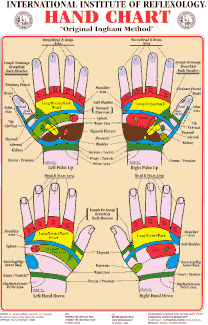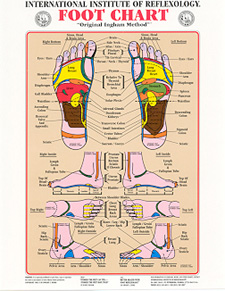What is reflexology? Reflexology is a science that deals with the principle of applying pressure techniques to the reflex points found on the feet and hands which correspond to all of the glands, organs, and parts of the body. Reflexology promotes the body to heal itself by the stimulation of the circulatory and lymphatic systems is as well as relieves tension/stress which in turn helps to improve the nerve impulses, blood supply, release of toxins, and to normalize body systems. After a complete reflexology session has been completed, we have activity stimulated all seven systems of the body. To put it simply, there are nerve endings on the feet and hands that transmit back through the spinal cord to the related areas of the body. When there is a problem area in the body one can trace it to a sensitive reflexes on the foot and by working those area on the foot we stimulate a healing process to the corresponding area in the body; similar to Acupressure, just not needles are used. Your feet are like a barometer, they reflect sensitive areas in the body. While working the reflex areas the client may feel crystals (crunches) in varies areas of the foot during the session. The areas are worked until the crystals are broken down and/or until the sensitivity has been relieved.
The ideas behind Reflexology are not new. In fact, it was practiced as early as 2330 BC by the Egyptian culture. Reflexology as we know it today was first researched and developed by Eunice Ingham, the pioneer in this field. Only the hands are used, making it a safe, simple, yet effective method in reducing stress and tension.
The grim reality of stress is showing scientific studies. The American Medical Association reported that stress was a factor in 75% of all diseases. A recent study even linked the effects of stress to weakening of the heart muscle. In the August, 2004 edition of Great Life magazine it was reported that Duke University Medical Center researchers in Durham, NC, studied the effects of stress on hearts in a clinical trial that monitored the reaction of the heart to everyday events. They discovered that the more stress, anger and sadness someone experienced, the less able their hearts were able to respond effectively. It was like the pressure exerted on the heart by the constant emotional ups and downs of stress caused it to stretch beyond its capacity to bounce back to normal.
For more information see these links:






